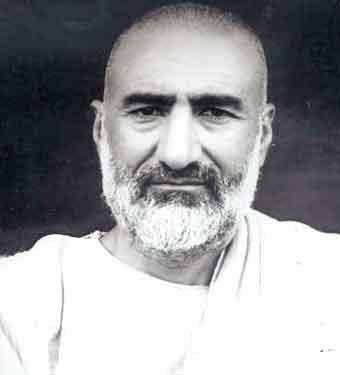
Khan Abdul Gaffar Khan, more than anything else, was a man of God who believed in service to the humanity as service to God. He was, in his view, a true Khudai Khidmatgar, Servant of God. Born in the North-west Frontier Province in 1890, Khan Abdul Gaffar Khan missed the opportunity of going abroad for studies because his mother would not let him go. He started a number of national schools, so that the sturdy Pathans could first educate themselves. He organized the Pathans as the Khudai Khidmatgars—Servant of God—with brownish (or red) uniforms—they were called the Red Shirts. Gaffar Khan attended the Karachi Congress of 1931. He was arrested along with his elder brother, Dr. Khan Saheb in 1931 and jailed in the Hazaribagh jail of Bihar.
At 20 years of age, Gaffar Khan opened his first school in Utmanzai. It was an instant success and he was soon invited into a larger circle of progressively minded reformers.
While he faced much opposition and personal difficulties, including the loss of his first wife in 1915 to an influenza epidemic, Gaffar Khan worked tirelessly to organize and raise the consciousness of his fellow Pushtuns. Between 1915 and 1918 he visited every one of the 500 settled districts of the Frontier. It was in this frenzied activity that he had come to be known as the Badshah Khan.
Gaffar Khan forged a close, spiritual, and uninhibited friendship with Mahatma Gandhi, the pioneer of non-violent mass civil disobedience in India. The two had a deep admiration towards each other and worked together closely till 1947.
Gaffar Khan was a champion of women’s rights and nonviolence. He became a hero in a society dominated by violence; notwithstanding his liberal views, his unswerving faith and obvious bravery led to immense respect. He was closely identified with Gandhi and he is known in India as the ‘Frontier Gandhi’.
Gaffar Khan was a member of the Congress Working Committee (CWC). When the CWC adopted the Mountbatten Plan for the division of India, Gaffar Khan was the saddest man among his compatriots. He spent the major part of the rest of his life in Pakistan jails. He attended the Congress Centenary session in Bombay in 1985. He was honuored with the Bharat Ratna in 1987. He passed away on January 20, 1988. He was a Citizen of the World, who embodied the best in Indian Culture.
